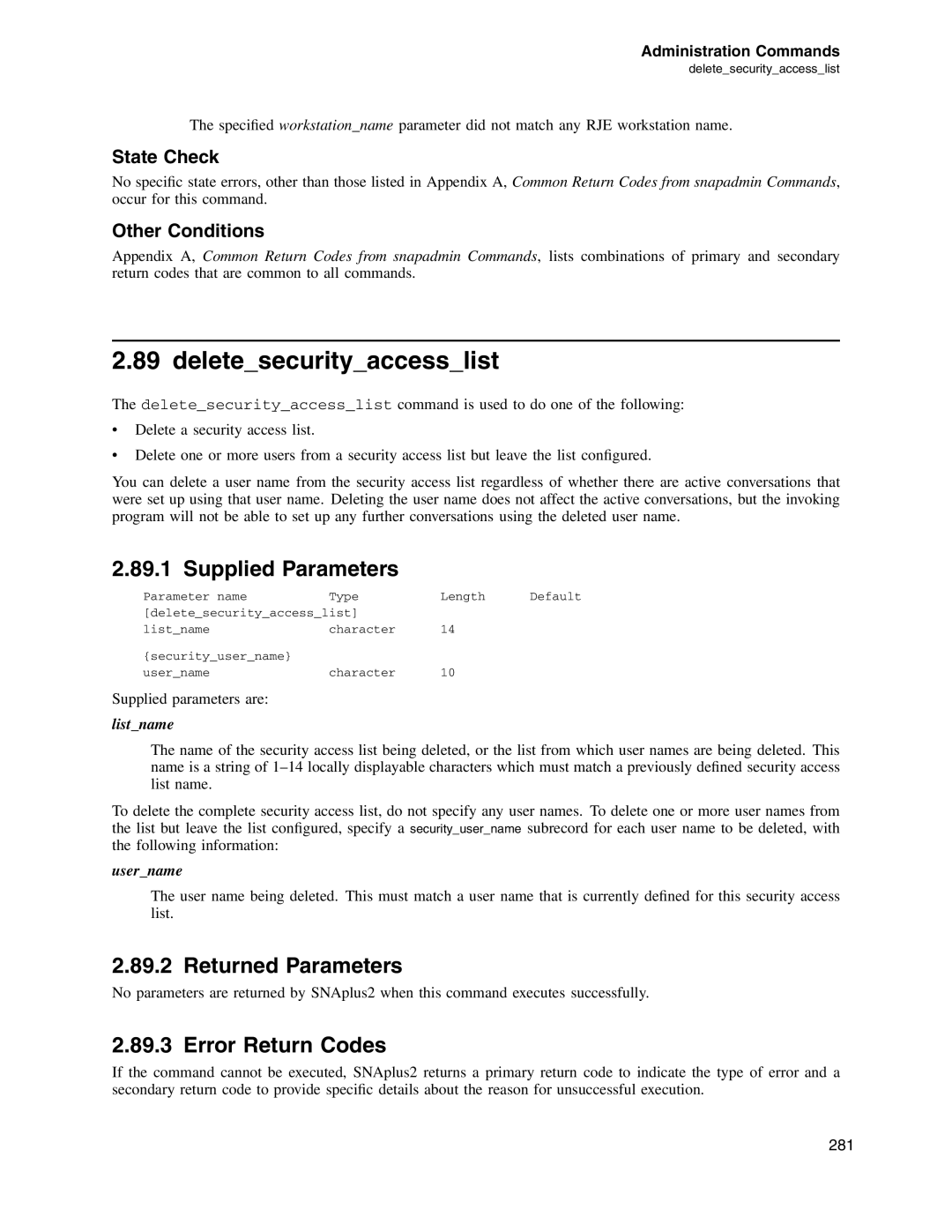Administration Commands
delete_security_access_list
The specified workstation_name parameter did not match any RJE workstation name.
State Check
No specific state errors, other than those listed in Appendix A, Common Return Codes from snapadmin Commands, occur for this command.
Other Conditions
Appendix A, Common Return Codes from snapadmin Commands, lists combinations of primary and secondary return codes that are common to all commands.
2.89 delete_security_access_list
The delete_security_access_list command is used to do one of the following:
•Delete a security access list.
•Delete one or more users from a security access list but leave the list configured.
You can delete a user name from the security access list regardless of whether there are active conversations that were set up using that user name. Deleting the user name does not affect the active conversations, but the invoking program will not be able to set up any further conversations using the deleted user name.
2.89.1 Supplied Parameters
Parameter name | Type | Length | Default |
[delete_security_access_list] |
|
| |
list_name | character | 14 |
|
{security_user_name} |
|
|
|
user_name | character | 10 |
|
Supplied parameters are:
list_name
The name of the security access list being deleted, or the list from which user names are being deleted. This name is a string of
To delete the complete security access list, do not specify any user names. To delete one or more user names from the list but leave the list configured, specify a security_user_name subrecord for each user name to be deleted, with the following information:
user_name
The user name being deleted. This must match a user name that is currently defined for this security access list.
2.89.2 Returned Parameters
No parameters are returned by SNAplus2 when this command executes successfully.
2.89.3 Error Return Codes
If the command cannot be executed, SNAplus2 returns a primary return code to indicate the type of error and a secondary return code to provide specific details about the reason for unsuccessful execution.
281
